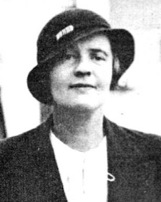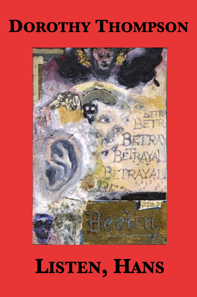
In 1934 she became the first correspondent to be expelled from Berlin on the orders of Adolf Hitler: she was the loudest and strongest voice in American journalism against the menace of the Nazis. Her thrice-weekly column, “On the Record,” was syndicated to hundreds of newspapers; she wrote a monthly essay for the Ladies’ Home Journal and broadcast weekly, sometimes daily, on news topics over the NBC radio network. Time magazine in 1939 called her the most influential woman in America after Eleanor Roosevelt.
Her career declined after World War II, when she argued for a “humane” peace with the defeated Germans and, later, took up the cause of the Palestinian Arabs in opposition to the State of Israel. Divorced from Lewis in 1942, she enjoyed a happy (and lusty) final marriage with the Czech painter Maxim Kopf (1892-1958). She died in Portugal in 1961 and left instructions for her epitaph: “Dorothy Thompson Kopf — Writer.” She was unquestionably the preeminent woman journalist of her era — perhaps of all time in the United States. Peter Kurth wrote her biography, American Cassandra: The Life of Dorothy Thompson.
Click on the cover for details about the eBook:




